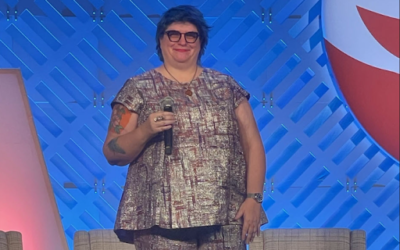Do we value the importance of listening in our dialogue?
What value does our society place on the importance of listening?
In every aspect of my work – as a diversity educator and advocate for social justice – I’ve embraced the belief that if I’m not listening, I’m not learning how to affect lasting change.
Sure, I make my living ‘giving talks’…
But for every hour I spend speaking to a room full of people or running workshops, I’ve spent at least ten times that asking questions and learning new insights from the answers.
And I just don’t ask questions of the folks who agree with me.
Often, I learn more from those who hold differing views.
Listening with the intent to understand
I’ve talked about this before: our tendency to listen with the intent to respond rather than understand. We get into conversations and spend our time nodding and, frantically, thinking of the next thing we want to say in rebuttal.
Rather than asking a question that follows your companion’s train of thought, you leap onto your train and depart the station, leaving your companion standing on the platform.
The lead-up to last year’s election got me thinking about this concept more deeply.
The dialogue, all too often, devolved into polarizing shouting matches.
Life-long friends became political enemies who couldn’t even share a coffee together…political dialogue became binary.
We became so intent on being heard and being right that we forgot about the importance of listening and learning.
I’m not sure we’re doing much better as a nation just yet, but with the turmoil over – for the most part – we can begin to settle down and start listening to one another again.
In that process of hearing each other’s point-of-view again, we’ll find solutions…together.
Listening is the cure
I was pouring vanilla cream into my coffee the other morning…because I’m so fancy.
But there was a time when I would have poured something different into my cup. I haven’t, since 2004, because I make different choices now, listen to different inside voices.
I choose to have coffee with vanilla cream.
It got me thinking about listening as a cure for so many of society’s challenges.
I made this list…
- Listening is about survival as much as it is about healing.
- Listening is about coming together as much as it is about thriving.
- Listening is about clarifying your morality and realizing it is something you have in common with others.
- Listening is about bipartisanship, lifting voices, and engaging the needs and wants of others.
- Listening is about supporting others to lessen their fears.
- Listening is about asking questions you don’t know the answers to.
- Listening is about treating yourself as if you have chosen to listen around things to serve yourself better…and you may be right or wrong – check with morality before proceeding.
- Listening is about treating people as if they are wise.
Let’s take a look at a few of the most important concepts.
Listening is about coming together
What if you listened to others so that you found common ground? It can be our tendency to listen to gain the upper hand in a situation and gain some knowledge that will give us an edge. Prove that we’re right, and they’re wrong.
But what if you saw the exercise of listening as an opportunity to help everyone around you thrive? What if you took in the information, folded it in with your existing knowledge, and found solutions that advanced everyone’s agenda, not just yours?
Listening is about supporting others
I told you a story about the woman on the plane…the one who was terrified of flying.
Instead of scoffing at her phobia, I listened to her, acknowledged her fears, and then set about making her feel more safe and comfortable.
For people who are vulnerable in our community, the very act of listening to their fears is an important first step towards easing those fears.
Few people perform at their best when they’re backed into a corner…
If we make a concerted effort to listen – really listen – to people’s fears, we’re helping them already. Once we put down our privilege and stop discounting their fears as irrational, we’re even farther along.
Listening is about asking questions
If you’re a trial lawyer, you should probably avoid asking questions of witnesses unless you’re sure of the answer.
But in a dialogue about diversity, inclusion, and social justice, stretch yourself to ask questions when you don’t know the answer.
Everyone brings a store of knowledge – their cultural background, family, education, work experience – to the table. The odds that someone sitting at that table knows something you don’t? Well, pretty good.
It’s human nature to avoid looking stupid. It’s assumed you’re not an expert in college or university, which is why you attend lectures.
You don’t have to be humble to be a student in that environment.
In a professional setting…that’s when your humility has to shine all on its own.
And if you’re willing to ask difficult questions, not knowing the answer, you’ll gain insights to inform your existing views. Either to shake them or reinforce them.
Listening is about treating people as though they are wise
This relates back to the previous point.
It’s never a mistake to treat people in a dialogue like they possess knowledge that you don’t…yet.
Consider the message you’re sending when you sit at the table, arms crossed, staring intently at the person in the other chair. They’re trying to explain their point of view and your body language telegraphs the fact that you think they’re a moron.
You’re not actually thinking they’re a moron. You’re just thinking, “I’m so much more informed about this issue than they are, but I’ll hear them out…”
They make their pitch, say their piece. You thank them…and move on. Dismissed. “Next!”
Few things shut down a dialogue about inclusion more quickly than having someone with a stake in the outcome patronized or humored.
There are no token stakeholders in important conversations. Every single person deserves to have their voice and their experiences heard.
Solutions come from listening to others
Chances are you’ve had that first day on the job…
The HR director is leading you around the office and they introduce you to that one person, announcing, “If you have any questions, she’s got all the answers.”
It’s comforting, isn’t it?
But in the arena of inclusion and social justice, you won’t find the answers in one tidy package in the third office down the hall.
Social change requires a diversity of voices. If you’re trying to find ways for your organization to start a healthy, inclusive dialogue, I can help.
Related articles:
Are expectations of others unfair? Think ‘present’ vs ‘now’
Take Your Event To The Next Level, Book Jess Today!
Take Your Event To The Next Level, Book Jess Today!
Related Blog Posts
What if it happens?
What if it happens? In 2016, the morning after the Presidential election was called for Donald Trump, the opening session sound check and breakfast buffet went as planned. As the ballroom began to fill up, about half of the participants were...
Welcoming back audiences that might be at different comfort levels after the last year?
Welcoming back audiences that might be at different comfort levels after the last year? A different question – What would you keep? March 6th. May 12th. May 15th. We all have dates from the past year that we will remember. Perhaps it was a...
Jessica Pettitt: Championing Diversity and Inclusion as a Keynote Speaker
In the dynamic world of keynote speaking, Jessica Pettitt stands out as a beacon of diversity, inclusion, and transformational change. Her unique approach combines humor, real-life experiences, and actionable insights, making her a sought-after...











0 Comments